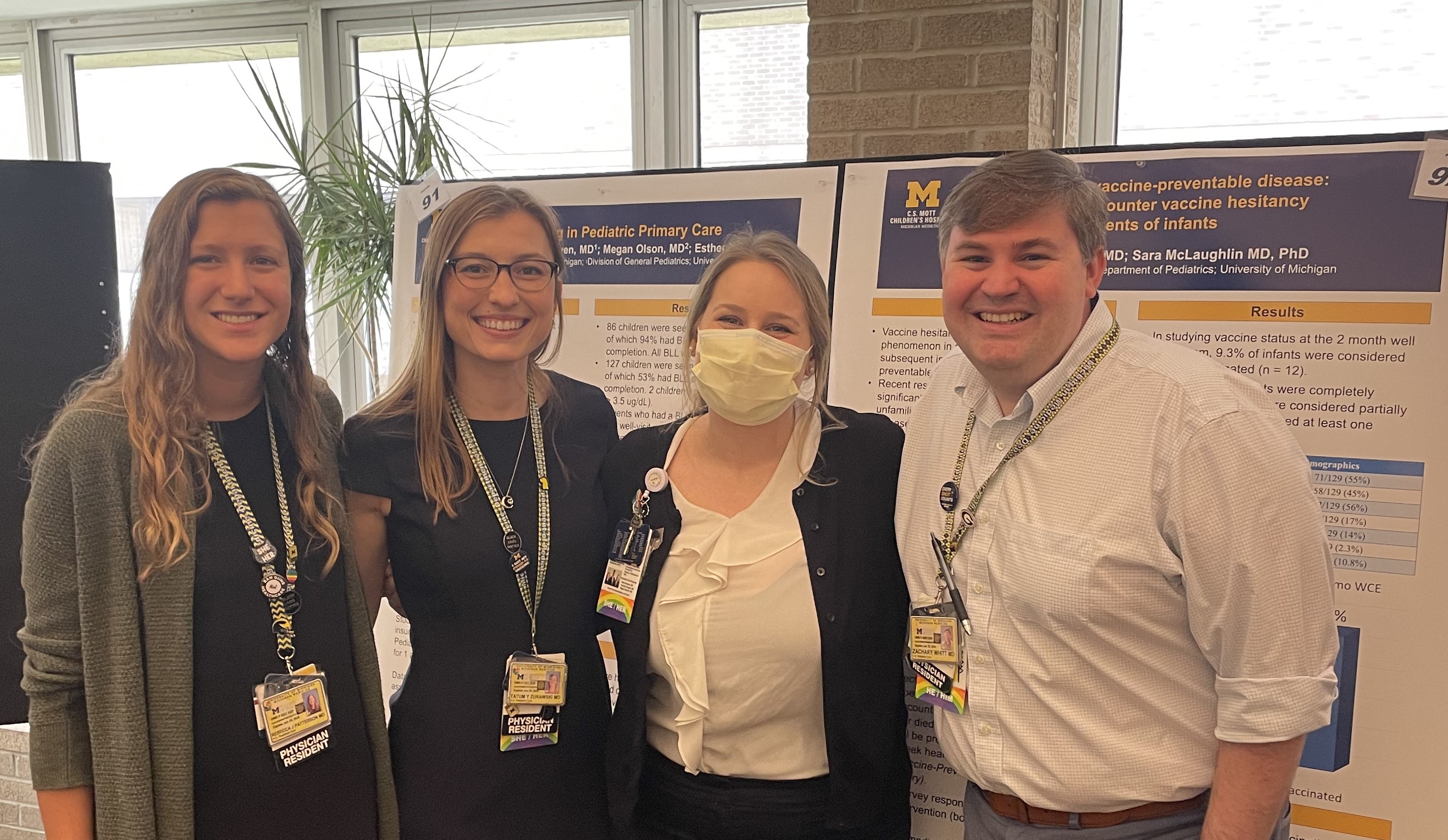Evidence Based Medicine
Incorporating Evidence Based Medicine (EBM) into medical decision making is integral to patient care and an important part of attaining clinical competency. Our residents attend the monthly journal clubs that discuss current literature relevant to pediatric clinical practice. In addition, all residents participate in a longitudinal curriculum to increase their familiarity and comfort using EBM. During dedicated and protected half-day sessions in the second and third year, a group of 3-5 residents and a faculty facilitator explore resources, search the literature appraise different types of scientific studies and discuss strategies for teaching and incorporating EBM into daily clinical care. Residents then practice these skills on their own, choosing topics most relevant to their interests.
Quality Improvement
The Department of Pediatrics has an active quality improvement (QI) program. During residency, trainees receive specific education in QI methodology, project development and data management including a formal QI and patient safety curriculum during the first year of training. This is achieved in time-protected small groups led by mentors with QI expertise. In their second- and third-years residents have the chance to conduct their own QI projects – both as groups and individually.
Quality improvement projects are diverse, multidisciplinary, and multifaceted in both the inpatient and outpatient settings. Our residents have successfully presented their QI projects and outcomes at local research symposiums and national meetings.
Selected examples of past projects include:
- Standardized Asthma Pathway for Hospitalized Patients
- Improving Patient Education Materials
- Understanding and Improving Family Centered Care
- Safety in the Discharge Medication Process
- Firearm Safety Education for Residents
- Increasing Well Child Visit Rates in the first 15 months
- Reach Out and Read Education for Residents
Scholarly Activity
The University of Michigan has established itself as one of the top research institutions in the country. The Department of Pediatrics is no exception, with over $25M a year in extramural research funding, world renowned faculty, state-of-the-art research facilities and a dedication to training future physician scientists. Our physicians have established projects with various other departments campus-wide taking advantage of the rich resources of the Medical School research community. All residents complete a mentored scholarly activity project during their residency. Support is provided by faculty across the department for projects in a wide variety of areas including basic science research, clinical research, quality improvement, global health and advocacy.
Selected examples of past projects include:
- Improving Screening and Management of Maternal Postpartum Depression in Primary Care Clinic
- Pediatric Dog Bite Injuries Presenting to a Tertiary Care Children’s Hospital
- Management and Outcomes of Candidemia in Pediatric Patients
- Continuity of Care in Primary Care Clinics
- Parental Acute Stress due to Invasive Procedures Performed at Bedside in the Pediatric Intensive Care Unit
- Management Patterns for New Murmurs in Michigan Medicine Primary Care Clinics
- Adherence to Echocardiogram Guidelines for Patients with Repaired Tetralogy of Fallot at a Large Pediatric Cardiac Center
- Improving Process of Routine Health Screening at Resident Clinic
- Biliblanket Utilization in Outpatient Pediatric Clinics
- Medical Record Vs. Self-Reported Demographic Information




